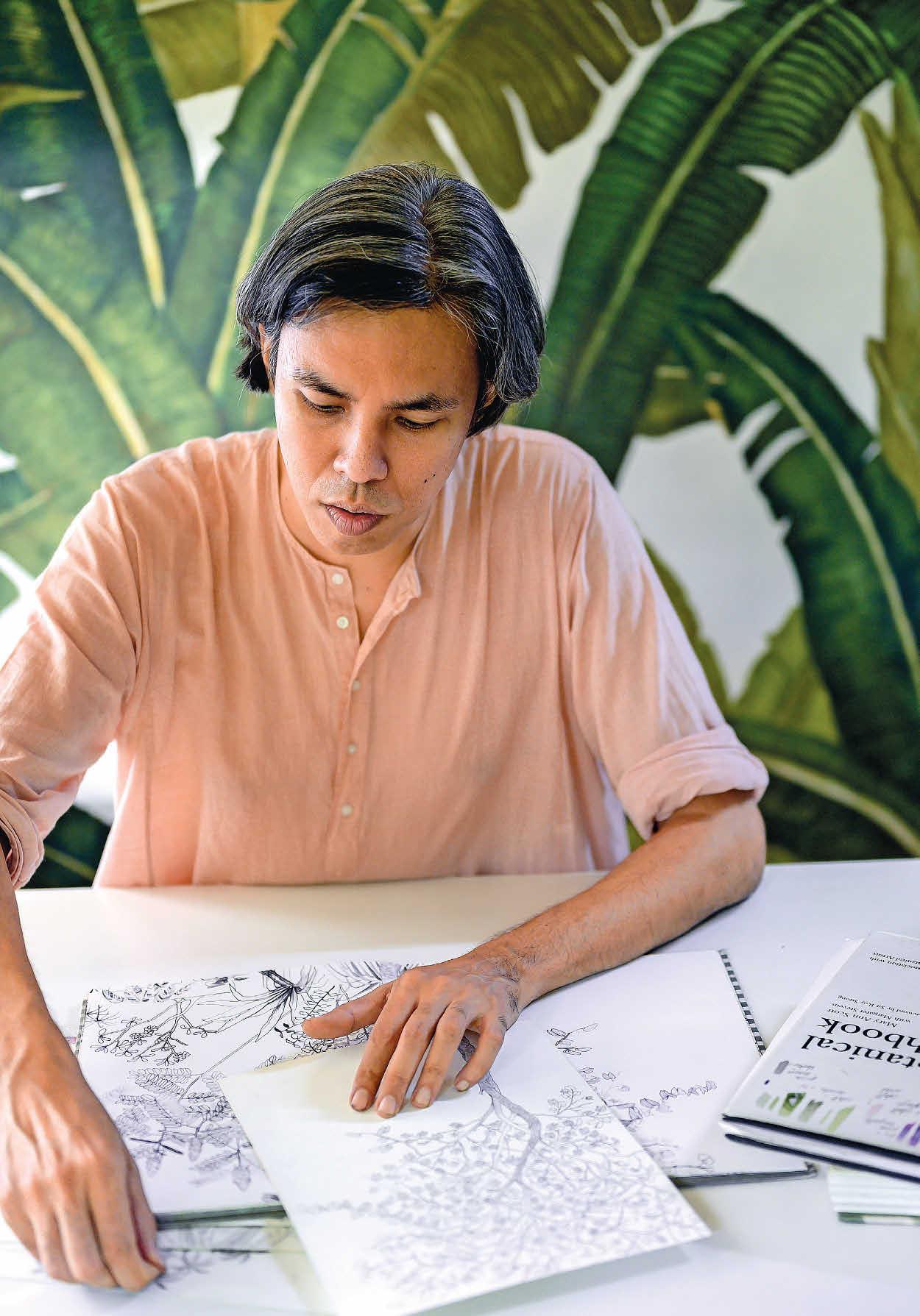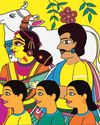
INTERVIEW
Aratrik Dev Varman, Designer
There is also a small, chic cafe in its courtyard that serves the best coffee in town. Tilla repurposes old pieces of textile into festive, celebratory, and high-end garments. Its clothes tell stories of many hands and many histories, using old mirror work, tinsel, or cowrie shell embellishments, just the way Varman intends it to be.
Varman—an alumnus of NID, Ahmedabad, and EnsAD design school, Paris—has lived in Kolkata and Chennai, two cities steeped in tradition and culture. His family hails from Tripura, where he spent his summers growing up. He initiated The Tripura Project a few years ago, in which he collected several pieces of the risha, or a breast cloth worn by Tripuri women woven from an indigenous textile. The project has now turned into a book, The Risha: History in a Narrow Weave, published by Marg (an art book publisher) and released this month. Varman speaks exclusively to THE WEEK about his work and his book:
Q/ Tilla is now 12 years old. Yet it is a relatively small and niche label that functions out of sleepy Ahmedabad.
A/ It is small and niche, because we take time to do things. When one scales up one has to be responsible for the quality one has envisioned. We are a high-end luxury, boutique brand and we like that. That said, we have grown from two tailors to 30. We stay away from techniques that simulate handwork. We believe in handmade luxury and that belief is never going away. We also work with the same set of people, so we have grown as a family.
Q/ What is at the core of Tilla?
Esta historia es de la edición May 26, 2024 de THE WEEK India.
Comience su prueba gratuita de Magzter GOLD de 7 días para acceder a miles de historias premium seleccionadas y a más de 9,000 revistas y periódicos.
Ya eres suscriptor ? Conectar
Esta historia es de la edición May 26, 2024 de THE WEEK India.
Comience su prueba gratuita de Magzter GOLD de 7 días para acceder a miles de historias premium seleccionadas y a más de 9,000 revistas y periódicos.
Ya eres suscriptor? Conectar

The day of the knuckle-duster
Several narratives have emerged from the Donald Trump-Volodymyr Zelensky-J.D. Vance dust-up in the Oval office, the most disturbing being the opinion that “Zelensky invited it”.

The AGI dilemma
Spooky and powerful, AGI (Artificial General Intelligence), the planet’s newest technology, has divine benefits, as also diabolical applications that can trigger our destruction.

I want to transform MP into a powerhouse of development
GIS 2025 surpassed expectations in investment commitments, participation, and policy impact.

It is not NEP 2020, it is RSS 2020
TAMIL NADU’S RESISTANCE to the three-language policy under the National Education Policy (NEP) 2020 has reignited the debate over linguistic identity.

Munde blues
Just months into its tenure, the Fadnavis government suffers multiple blows

Plastic buckets and parliament seats
The plastics industry boomed in the 1970s when our rulers told our people to make fewer babies. The dairy industry, already on a high milkmark, should boom if Telugu Desam MP Kalisetti Appalanaidu gets people to make more babies. What’s the connection? Hold on. First listen to India’s population story that’s already a statistical farce, and may soon be a political tragedy.

MDGA-Make Diplomacy Great Again
Must say that all the reports of 'Agent Krasnov' make fascinating reading—like one of those old school, thick-as-a-brick bestsellers that Irving Wallace and Robert Ludlum used to write.

In search of Pampa
Salman Rushdie breathes life to the forgotten goddess Pampa Devi in his novel Victory City (2023).

Centre of attraction
If the enthusiasm at the Global Investors Summit is anything to go by, Madhya Pradesh is poised to write a new chapter of development

RO AND BEHOLD!
As the Champions Trophy win showed, the Rohit Sharma-led veteran brigade might not be over the hill. However, they will have to be on their toes as age and younger talent catch up